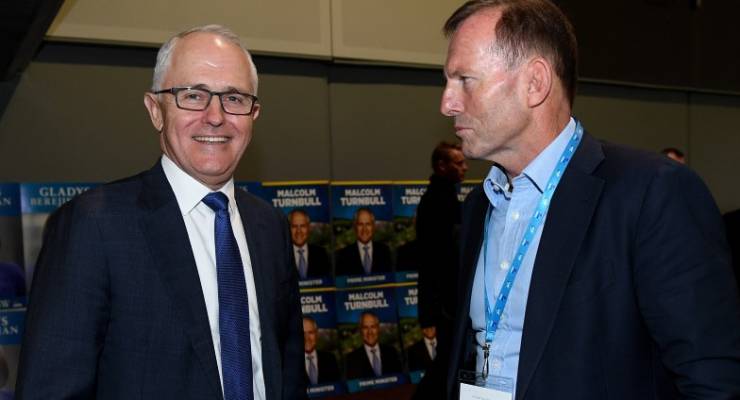
Bernard Keane once again inspired the lion’s share of debate yesterday, with readers keen to argue how impressive Turnbull’s party room NEG “victory” really is (with the consensus being that Abbott might still have his shot at sinking the vote). Elsewhere, readers gave insight into the implications of the government’s continued push for encryption-breaking technology.
On Turnbull trumping Abbott on the NEG
Ben Marshall writes: Yeah but nah. Abbott is all you say he is, but the consequences of his latest spray won’t be a victory for Turnbull against Abbott. Turnbull’s done everything Abbott would’ve done. With the NEG about to be waved through with some feeble caveats by Labor et al, Abbott gets what he wants — at least five more years in which nothing substantive will be done in energy and climate, and investment in renewable energy will remain risky and uncertain. To frame Turnbull continuing to push the NEG, which is a mere cover for avoiding a real energy and climate policy, as a win, entirely misses the point — for all Abbott’s squalling, he’s won this game yet again.
Arky writes: Is it still a win if Abbott and his cohorts have the numbers to join with Labor and the Greens to sink the NEG? Because even if Andrew Wilkie supports it, five floor-crossers sink the show. Tony Abbott, Craig Kelly, Andrew Hastie and Eric Abetz have all declared themselves “hard no” on the NEG. Christensen, Andrews and Pasin have all at least made noises about it. I can’t remember the last time Andrews, at least, wasn’t attached to Abbott and Abetz by the hip. But if Wilkie is with Labor and the Greens, the four known “hard nos” are enough.
Mr Denmore writes: In the politics of this issue, Abbott is Python’s Black Knight – dismembered and humiliated. In policy terms, however, that role belongs to Turnbull. And the swingeing cuts to his credibility are all of his own doing.
On the government’s continued attack against encryption
Ian Farquhar writes: Speaking as an INFOSEC professional who is actually involved in the development of security infrastructure — but speaking entirely for myself and not my employer — the phrase “to build a new capability that will enable them to give assistance” into existing infrastructure is the very definition of a backdoor. As with almost everything this government has produced around information security, it’s really hard to tell whether it’s mind-numbing incompetence, or whether it represents the worst contempt for the intelligence of the voting public ever seen in Australia.
It is also equally unclear to me whether US-based companies would comply. Given that, following the 2015 San Bernardino shooting, the FBI asked Apple to build something which would be reasonably described as the same capability Australia wish to mandate, and Apple refused, how much more compelling will the same request from Australia be?
But it’s an interesting example of skewed priorities: while the European governments are aggressively protecting EU subject’s privacy with the GDPR, Australian politicians are cravenly trying to remove as much of it as they can. I include Labor in this criticism, as they’ve been totally complicit.
Send your comments, corrections, clarifications and cock-ups to boss@crikey.com.au. We reserve the right to edit comments for length and clarity. Please include your full name.







Crikey is committed to hosting lively discussions. Help us keep the conversation useful, interesting and welcoming. We aim to publish comments quickly in the interest of promoting robust conversation, but we’re a small team and we deploy filters to protect against legal risk. Occasionally your comment may be held up while we review, but we’re working as fast as we can to keep the conversation rolling.
The Crikey comment section is members-only content. Please subscribe to leave a comment.
The Crikey comment section is members-only content. Please login to leave a comment.